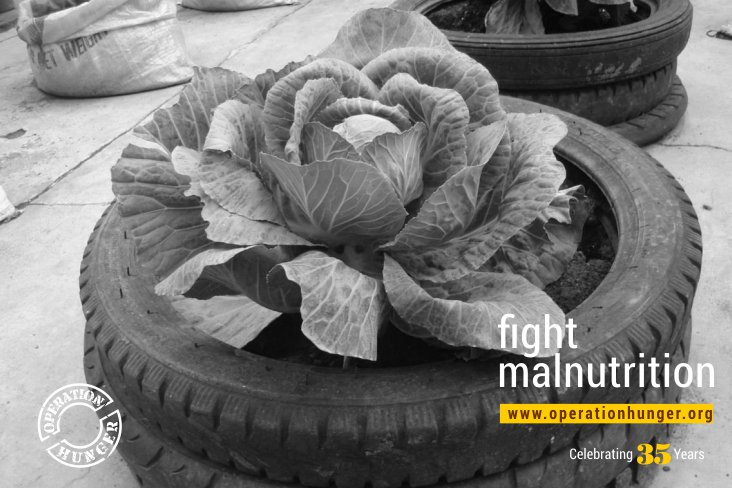Celebrating 35 years
Operation Hunger’s Vegetable Garden Projects
CREATING SUSTAINABLE NUTRITIONALLY COMMUNITIES


Operation Hunger supported a community vegetable garden project at Zwelethemba in Worcester and twenty home gardens in both Spandau and Green Park, Cape Town. Approximately sixty (60) families were involved in these gardens and more than 360 men, women and children have benefited from the activities and the fresh produce.
A vegetable production and rainwater harvesting project in the Kannaland Municipal area at Calitzdorp has being initiated. The project was initially sponsored by the NDA and now functions on its own with some donations when available. This is an income-generating project which involves fifteen families and benefits about 300 people.
In Limpopo the Tshabadimaketse garden project is going from strength to strength. The size of the garden has been increased in order to produce more vegetables. Fifteen women and five men are involved in the project and 140 people are directly benefiting from the income and fresh vegetables.
A small garden project run by three women in Naphedi, Limpopo is providing a local school with vegetables. These enterprising women are also growing seedlings to assist a nearby nursery.
The Kodumela garden project is an example of sustainable economic empowerment. Eight women and four men are actively involved in growing tomatoes on a fairly large scale and more than 100 tomatoes are sold daily to a local businessman.
The Newlands vegetable garden project in the Eastern Cape, originally funded by the NDA, resulted in 100 men and women receiving garden training and water rollers and in the establishment of 100 home gardens.
Vegetables grown include cabbage, spinach, beetroot, onions, green peppers and turnips. Many persons living with HIV/AIDS and TB benefit from the fresh produce. Home Based Care Givers are also able to use the fresh vegetables for those who are terminally ill.
